The Importance of Air Filters
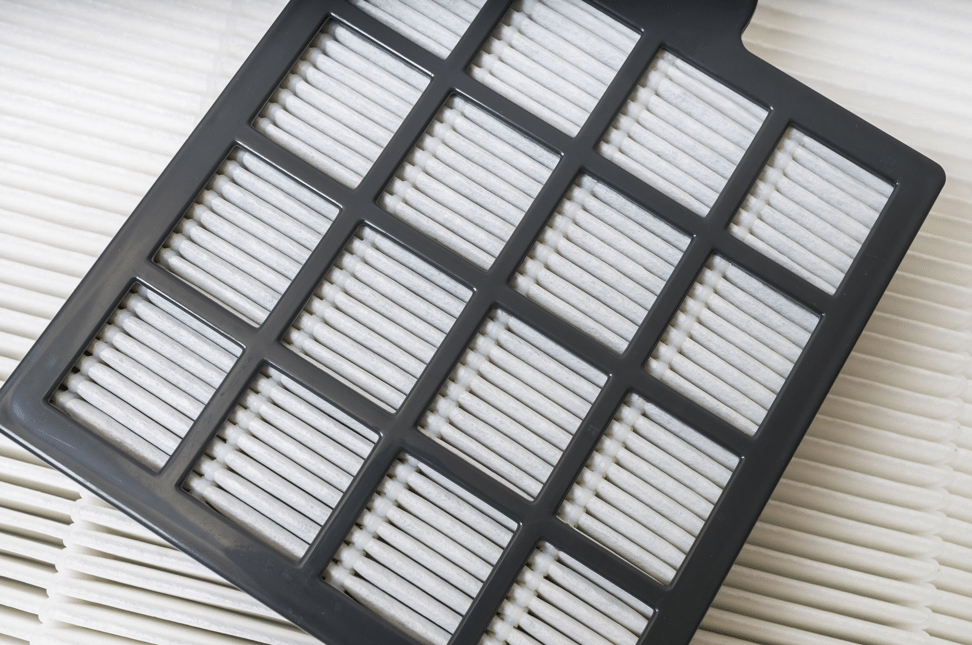
An air filter is an essential yet often overlooked component of a healthy HVAC system. This lightweight barrier traps dust, allergens, and other rubbish from entering the air you breathe. It also makes your HVAC system's job easier, improving its lifespan and minimizing the need for repairs. However, most people don't change their air filter as often as they should, leading to an array of problems. By understanding the consequences of using a dirty air filter and how often to replace it, you can save money and improve your comfort and health. Here are some tips from a leading HVAC company in Anaheim.
What Happens if You Don't Replace Your Air Filter?
High Energy Costs.
A dirty air filter stifles air circulation, forcing your HVAC system to work overtime to heat or cool your home. This leads to higher electricity bills and can shorten the lifespan of your HVAC unit.
Inconsistent Air Temperature
Because the HVAC system is struggling to blow air, certain areas of your home may be hotter or cooler than you'd like. A dirty air filter can even interfere with the temperature sensors that signal your HVAC system to start or stop. The result is discomfort, inefficient operation, and repair costs due to high strain on the fan motor.
High Risk of System Failure.
A worn out fan motor combined with difficulty in moving air inevitably leads to overheating or freezing up. The air that would move freely through a clean air filter becomes trapped behind a dirty one, placing high energy demand on your HVAC system.
Poor Air Quality
A dirty air filter traps not just air, but moisture. Under humid conditions, this promotes the growth of bacteria and mold, which further clog up the filter. Even worse, these microbes can spread into the HVAC system and into the air in your home, causing allergic reactions and other health issues. Left unchecked, this can cause long-term health problems, especially for young children and the elderly.
Dirty Air Ducts
A buildup of pollutants in your air ducts further reduces the efficiency of your HVAC system and increases pollutants in the air throughout your home. Changing your air filter is much quicker and easier than dealing with the fallout from polluted ducts.
How Often Should You Change Your Air Filter?
Many people elect to change their air filter twice a year, usually in the spring and fall. However, its best to change your air filter at least every other month, especially in spacious homes or if you have pets. Fortunately, air filters are low-cost and easy to replace on your own; simply remove the dirty filter and set the new filter in place. Just make sure to review your system's documentation to identify the proper size and type of filter you need.
To learn more about the importance of air filters and other tips on maintaining your HVAC system and improving the quality of air in your home, contact NexGen Air & Heat. As the premier HVAC company in Los Angeles, we take pride in helping customers save money and breathe easy.
Call NexGen Today
Our expertise and commitment to customer satisfaction make us the leading HVAC company in Southern California. To learn more about our equipment, services, and protection plan,
book an appointment online or call
888-277-0415.
7 Tips To Keep Your Water Heater Running Efficiently

Your water heater is easy to forget about. Every morning you get up and take your shower, and hot water flows through your home just like it has every morning before, but as it does its job, your water heater is using valuable energy. There are some maintenance steps you can take to make it run as efficiently as possible and also extend its life. If you've been wondering what water heater maintenance Los Angeles HVAC pros recommend, here's what the team at NexGen Air wants you to know.
How to Maintain My Water Heater so It Runs Efficiently
To keep your water heater efficient, you will want to:
1. Turn Down the Temperature
Hot water is a necessity, but you may not need the water to be quite as hot as you think. Every 10 degrees you lower your heater will save about 3 to 5 percent on your energy bills, and also keep your heater from working too hard. Instead of the 140 degrees most heaters are preset for, lower it to 120. However, don't go lower, as too cool will allow more mineral buildup.
2. Drain the Tank
One of the problems that plague water heaters is sediment and debris. Drain ¼ of the water in the tank several times a year to reduce this problem. Before draining, turn off the electricity or gas to put out the pilot light, then hook up a hose to the drain and run for 10 to 15 minutes.
3. Insulate the Pipes
Insulate all exposed hot water pipes. This will help in two ways. First, it will stop heat loss. Second, it will help your water to arrive hotter at the faucet. This means less time running the water and waiting for it to warm, so not only will you lose less heating energy but you will also lose less water.
4. Add an Insulation Blanket
Putting an insulation blanket around the water heater will improve its efficiency, particularly if you have an older unit. In fact, you could see a 45% reduction in heat loss with this addition.
5. Use Less Hot Water
If you have a family with four people, and each of those four people showers for five minutes a day, you will use 700 gallons of water a week. That's a significant amount. To make your water heater more efficient, use less hot water. Low-flow showerheads and faucet aerators on bathroom and kitchen faucets will help. These steps can reduce hot water use by up to 60%.
6. Schedule Annual Hot Water Heater Inspections
Have a professional HVAC technician inspect your water heater once a year. This will ensure that any small problems that are developing are addressed before they hurt the system's efficiency or cause a system breakdown.
7. Change the T&P Valve
The T&P Valve release pressurized hot water when the pressure builds to a high level inside the tank. As it wears out, it may start releasing water too often. You can address this by either lowering the temperature in the water heater a few degrees or replacing a faulty or failing valve.
Call NexGen Today
NexGen Air is an HVAC company in Los Angeles that offers a full list of water heater maintenance,
bathroom, and plumbing services. Our expertise and commitment to customer satisfaction make us the leading HVAC company in Southern California. To learn more about our equipment, services, and protection plan,
book an appointment online or call
888-277-0415.
Maximize the Energy Efficiency of Your Home

Are your energy bills leaving you with little money in your pocket? According to Energy Star, around half of all of the energy used in today's homes goes to heating and cooling them. While changing out your light bulbs for LED or CFL options and turning off light switches are great ways to save energy, if you are serious about having an energy-efficient home, you need to focus on comfort system efficiency. At NexGen Air, we want to help our customers in Los Angeles, Anaheim and Palm Desert save money by reducing their energy use and costs. Here are some tips from our experts to help you start saving.
1. Add Proper Insulation
How much heat energy is lost through the attic? If your insulation is insufficient, the answer is more than you might think. Adding a layer of insulation will make your home much more efficient because it will help keep your cooled and heated air inside where it belongs. NexGen Air can help you evaluate your insulation to see if it's sufficient for your home's needs.
2. Install a "Smarter" Thermostat
A smart thermostat or WiFi thermostat gives you greater control over your HVAC system, and greater control means better efficiency. With a smart thermostat that you can control from your phone, you can adjust the temperature in your home from anywhere. While a programmable thermostat allows this as well, with a WiFi thermostat you can make adjustments even when your schedule changes while you’re out. As long as you have access to the Internet, you can adjust your home comfort settings to be as efficient as possible.
3. Get New Window Treatments
Curtains can do more than just decorate your space. Energy-efficient window treatments can help keep heated or cooled air inside your home. They add another insulating barrier between your home and the outside, so you can enjoy less lost energy.
4. Keep Your HVAC System Maintained
Proper HVAC maintenance will help your furnace and air conditioner run at an optimal level. This means greater efficiency no matter the season. At NexGen Air, we recommend having a maintenance check at the start of both the cooling and the heating seasons.
5. Plant a Shade Tree
On the west side of your home, plant shrubs or a tree that can block the sun from pouring in. This is important, because this is the side of the house where the most intense heat will come during the hottest part of the day in the summer. If you choose a tree or bush that loses its leaves, you can enjoy the added warmth in the winter when the plants are bare, and the added shade in the summer when the sun is harsh.
Call NexGen Today
Are you looking for more tips on making your HVAC system efficient? NexGen Air has a team of experts who are ready to help you. We will help you ensure that your HVAC system is not driving up your energy bills. Our expertise and commitment to customer satisfaction make us the leading HVAC company in Southern California. To learn more about our equipment, services, and protection plan,
book an appointment online or call
888-277-0415.
How to Prepare Your HVAC System for Spring
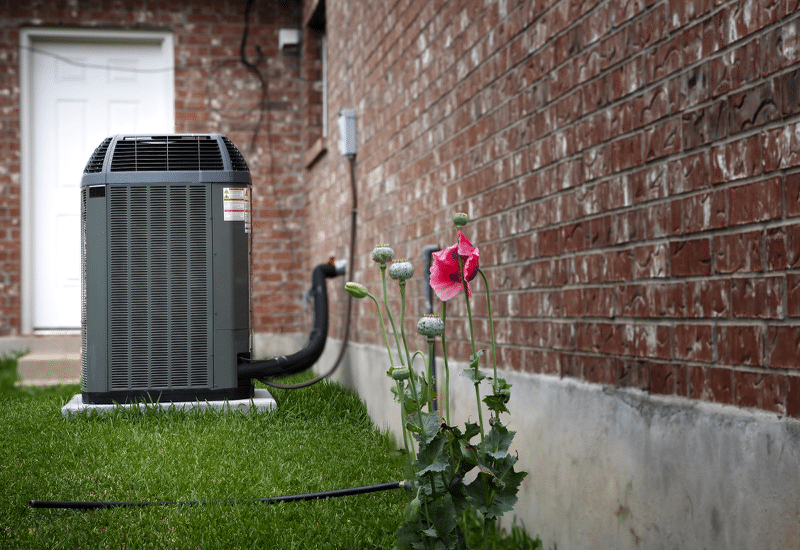
As winter melts away and birds begin to chirp, you’ve told yourself multiple times: “I need to look into how to prepare my HVAC system for spring.”
Wise homeowners will ensure that their air conditioner is in top working order for that first warm day. By following the five tips below, you can be ready when summer weather hits and set yourself up for energy-efficient and cost-effective cooling all summer long.
1. Change Your HVAC Filters
If you want to know how to get rid of allergies this spring, you can begin by simply replacing the furnace filter on your HVAC system. As every allergy sufferer knows, spring brings ample amounts of pollen and other airborne allergens. Remove these seasonal allergens from your home with a brand-new furnace filter. If your air conditioning unit employs additional air filters of any kind, you should replace each of these as well. There’s no telling what has settled on them over the long winter months!
2. Inspect the Ducts and Insulation
Leaking ducts and missing insulation on your HVAC system will have your air conditioner working overtime. A professional technician can insure that your ducts are airtight and well-insulated, leading you to cheaper monthly utility bills throughout the summer. Hate warm spots in your otherwise cool home? An optimized duct system will ensure that each corner of each room has an even and comfortable temperature.
3. Make Sure That Your HVAC System is Clean
Although a new furnace filter can work wonders in terms of the overall air quality of your home, the dirt that already rests within your duct system can quickly clog it. For this reason, experts recommend scheduling professional duct cleaning every five to seven years. Homeowners should also ensure that all indoor and outdoor air conditioning equipment/infrastructure is completely free of dirt and debris. When it comes to outdoor air conditioning units, you must also protect against invading plants and pests that may cause unexpected damage. Keep grass and weeds away from all vents and call a pest control specialist to handle any insect/animal intruder.
4. Consider a Programmable Thermostat
When you’re at work or outside in the summer sunshine, you simply don’t need to cool an empty house. Stop running your air conditioner constantly by installing a programmable thermostat. Unlike traditional thermostats that must be set by hand, this device incorporates a timer that can trigger a new temperate setting for each hour of the day and night. It even knows the difference between a Wednesday (when you’re hard at work) and a Saturday (when you’re relaxing around the house).
5. Schedule a Spring HVAC Tune-Up
To get the most out of your HVAC system, you should schedule professional maintenance visits at least twice a year. For all of the reasons detailed above, spring is an ideal time for one of these visits. In addition to inspecting, cleaning, and/or repairing your ducts, you can ensure that all components of your air conditioner are in perfect working order. And a trained HVAC technician can also install that programmable thermostat you’ve been considering!
NexGen Air provides comprehensive HVAC services for both residential and business clients. Schedule your seasonal tune-up with NexGen Air today before spring has sprung!
Call NexGen Today
Our expertise and commitment to customer satisfaction make us the leading HVAC company in Southern California. To learn more about our equipment, services, and protection plan,
book an appointment online or call
888-277-0415.
5 Reasons Why Your HVAC System Could Be Causing Your Allergies

It has been proven that the quality of your home's indoor air can directly affect your family's health. According to the EPA, exposure to poor indoor air quality can cause immediate discomfort. They warn that the long term effects from extended periods of breathing indoor air pollution can also cause lingering and chronic illnesses. Many respiratory diseases and allergies have been linked to living in a home with dirty air.
After long periods of time, the concentrations of indoor pollution will continue to build up, and the resulting health effects can be debilitating and are often the cause of allergies. It is important to have regular maintenance of your HVAC system to eliminate or reduce the circulation of contaminants in your home. HVAC technicians that perform regular inspection and cleaning of your HVAC units and ductwork can also detect more serious conditions, such as carbon monoxide leakage which can be deadly.
1. Dust and Dirty Air Filters
HVAC maintenance may include removing dust from the register and return vents in the home. Also, a yearly replacement of your home’s furnace filters is crucial for good indoor air quality. Speak with your HVAC technician about the choices in high quality air filters that remove a greater amount of airborne particulates.
2. Mold in Home or AC Unit
Mold can thrive within different areas of you AC unit that are prone to humidity and moisture. These include the drip pan, evaporator coils, and within air ducts. Technicians are trained to detect mold and will advise on the best measures the homeowner should take for removal. If mold is circulated from other parts of your home by way of the duct system, the fungus spores will enter nose and lungs, presenting symptoms that resemble hay fever.
3. Pet Dander and Pollen Circulation
If someone in your family already experiences environmental allergies, then poor air quality from outside sources can enter your HVAC system and cause increased symptoms. According to WebMD, using HEPA filtersto trap these pollutants can help bring relief from allergies. With a HEPA filter, air is forced through such a fine mesh, that harmful and allergy-causing particles are trapped. If you are considering a HEPA filter, consult with an HVAC expert to determine if an upgrade to your HVAC system is required to handle the high energy required to pass air through these filters.
4. Carbon Monoxide Exposure
Low exposure to carbon monoxide can present symptoms that resemble allergies. Low concentration levels of CO in your home over long periods of time can cause nausea, headache, dizziness, and weakness. The mucous membranes are also affected and may eventually appear cherry red in color - this is an allergic reaction to the gas. Since carbon monoxide is odorless and tasteless, your HVAC technician can recommend a high quality CO detector to protect your home.
5. Lack of HVAC Maintenance
The overall health of your HVAC system can contribute to your indoor air quality and reduce or increase allergies. From regular cleaning, to high quality filters, and regular inspection for signs of biological contaminants - regular HVAC maintenance will help reduce the allergic symptoms that your family is experiencing.
Call NexGen Today
Our expertise and commitment to customer satisfaction make us the leading HVAC company in Southern California. To learn more about our equipment, services, and protection plan,
book an appointment online or call
888-277-0415.
Can Your Heater Handle This Winter?
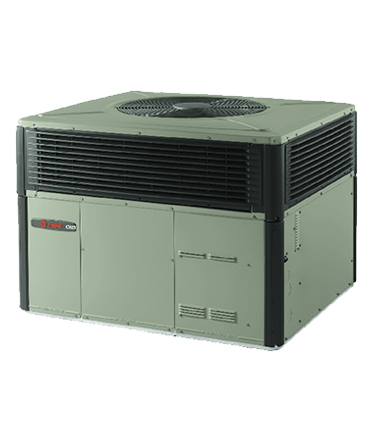
The last thing any homeowner wants is a freezing home. If you are cautious, you’d always want to have your heating unit regularly maintained, but it’s sometimes impossible to predict when you’ll need repairs. Scheduling regular HVAC maintenance will help solve any potential or current issues before you go through another cold night without heat.
General Repair And Maintenance Practices
If you choose not to have your furnace regularly maintained, you are likely to void the manufacturer’s warranty. In fact, when your heater breaks down and you do not bother to have a professional look at it, you might have to repair or replace your entire heater, which will end up costing you more.
If the filters are not regularly inspected, they can restrict air flow, and this puts a lot of strain on the motor fan, which can eventually lead to overheating or equipment failure. There are also high chances that your indoor air quality might be drastically reduced and this can aggravate asthma, allergies and other illness.
Why You Should Regularly Change Your Furnace Filters
Although most manufacturers recommend that you should have your heating unit filter changed every three months, it’s not a bad idea to check them on a monthly basis to see whether they are filled with debris and dirt. This prevents dust and other subtle substances from circulating in your home and maximizes your furnace’s airflow.
Also, regular replacements protect the critical parts of your heater that might end up causing unexpected damage and hefty repair costs. Apart from the three-month maintenance cycle, you should have a yearly routine inspection to keep your HVAC running like new.
If you abide by the manufacturer's requirement regarding servicing and maintenance, you will hardly run into issues. That being the case, if you have any concerns regarding your heating unit or want it checked for any potential problems, you should get in touch with an HVAC expert and schedule an appointment.
Annual Heating System Tune-Up
Most of the residential heating systems have a lifespan of between twelve to fifteen years. However, your heating unit will have an even shorter duration without proper preventive maintenance. Therefore, scheduling an annual heater tune-up is the best way to ensure that your furnace is working optimally.
If you experience any issues at the heart of the season, it's best if you immediately contact an HVAC technician to attend to the problem as soon as possible. That aside, if there is a prediction of harsh winter then it’s best if you contact a professional to inspect your heating unit beforehand.
Winter is one of the seasons you don’t want to be caught off guard especially when it comes to keeping your home warm. Therefore, if you take note of these precautionary measures, you shouldn’t have to worry when the cold season approaches.
Call NexGen Today
Our expertise and commitment to customer satisfaction make us the leading HVAC company in Southern California. To learn more about our equipment, services, and protection plan,
book an appointment online or call
888-277-0415.
Common Furnace Problems
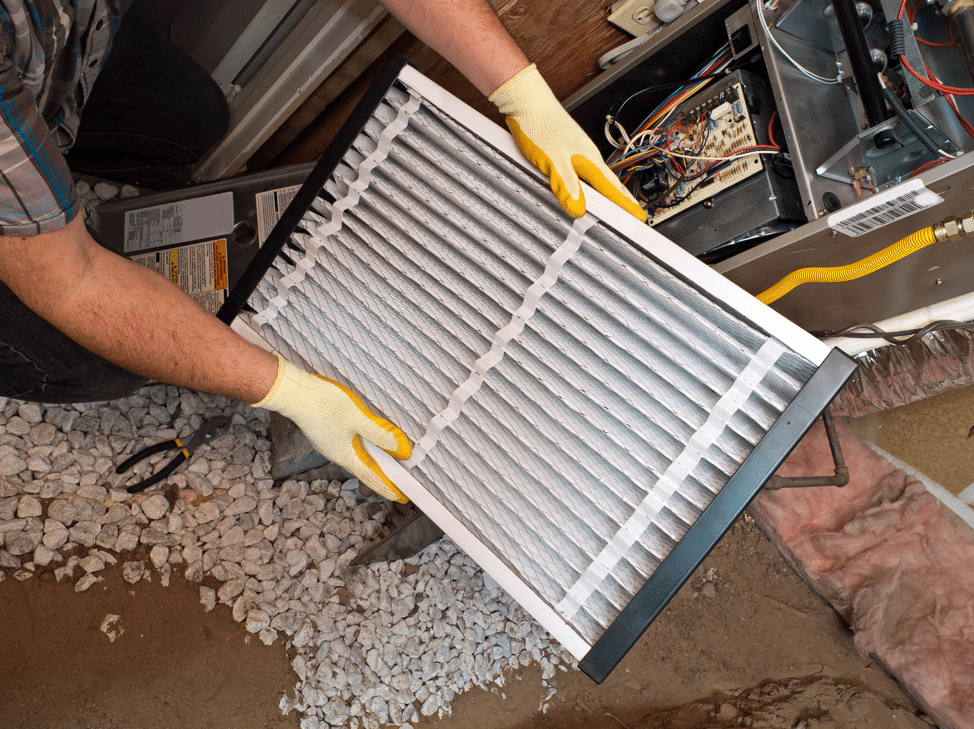
During cold and rainy weather, the last thing you want to be worried about is your furnace not functioning properly. For this reason, furnace maintenance and repairs are one of the most important actions you can take for your home. Scheduling regular maintenance, inspections, and repairs with a reputable HVAC company in your area such as NexGen, will help prevent furnace problems.
Below are the nine most common furnace problems and why they happen:
1. Lack of maintenance:
If you don’t schedule regular furnace inspections and maintenance, you may be in for an unexpected breakdown just when you need your furnace most. Maintenance is extremely important to help your furnace run as well as it should, and heat your home when you need it.
2. Dirty filters:
Dirty or clogged filters are one of the most common problems for furnace owners. They can reduce airflow and put more strain on the furnace. In extreme cases, filters clogged with dirt and debris can damage the limit switch, which controls the fan, and result in even more problems.
3. Daily wear and tear:
Just like any appliance, constant use will age the appliance quickly and it may malfunction. This is another reason to make sure your furnace is well taken care of by a company like NexGen who makes sure your home is protected and comfortable at all times. Most furnaces last about fifteen years before they need to be replaced.
4. Electric ignition or pilot control problems:
If your furnace isn’t lighting, it can’t heat your home. When you notice the pilot light is out, you will want to call your HVAC technician to have the problem professionally fixed.
5. Malfunctioning thermostats:
If your thermostat is not working correctly, this could lead to your heater or ac not turning on at the times you have programmed it to.
6. Furnace not heating enough:
If your furnace doesn’t keep your house warm enough on a consistent basis, you may have a furnace that is simply too small for your space. An appointment to have a technician inspect your homes HVAC system will help determine what type of furnace your home needs.
7. Frequent on-and-off cycling:
Clogged filters may cause the thermostat and fan to cycle on and off repeatedly, even when the house is not finished heating or is warm enough. Improper airflow may also be the culprit.
8. Noisy furnace:
Rumbling, squeaking, and rattling sounds coming from your furnace may indicate a problem, blockage, or airflow reduction that needs to be investigated by a professional HVAC company.
9. Blower never turns off:
If your blower never seems to turn off, the limit switch may need professional replacement.
Call NexGen Today
Our expertise and commitment to customer satisfaction make us the leading HVAC company in Southern California. To learn more about our equipment, services, and protection plan,
book an appointment online or call
888-277-0415.
Covering Your Air Conditioner During Winter to Prevent Damage
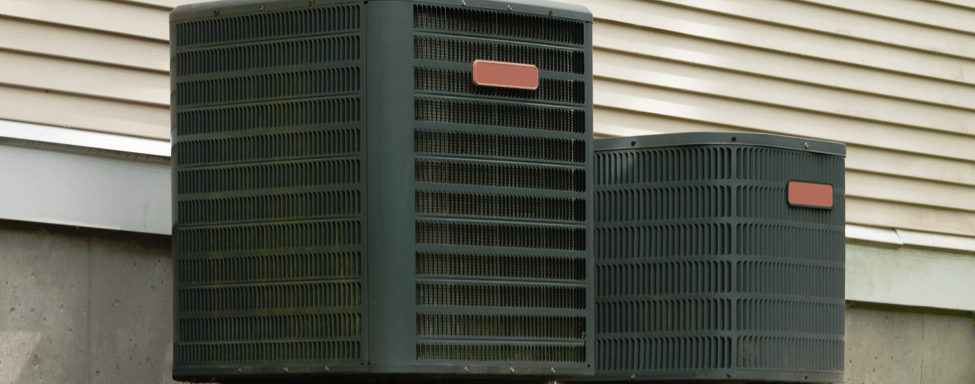
Plan Early
After going through a long summer pumping cool air through your home, your central air conditioning unit is finally enjoying a much-needed rest during winter. There are some essential steps that you should take to protect your AC unit during winter so that it will be ready to serve you better when the temperatures start to rise again.
Typically, the air conditioning system has been built to survive in tough weather, and some homeowners say that their AC units still work fine even when they fail to implement any protective measures during winter. However, the outdoor unit may be damaged by debris, repeated freeze-and-thaw cycles, and moisture buildup if you fail to perform any protective action during winter.
Most homeowners have been wondering whether it’s good to cover the air conditioning unit during winter. In fact, this has been a heated debate in the heating and cooling industry for long. Nonetheless, there are several advantages to covering your unit.
Covering Your AC Unit Helps to Protect It from Hailstorms
It may not be necessary to cover your AC unit if you live in areas that don’t experience hailstorms, but if you live in the north, it might be worthwhile if you consider covering it in winter. For instance, it’s not strange to encounter hail in the Midwest.
Although it’s difficult to know when a massive storm is coming, covering your AC units acts as a proactive measure that safeguards it against potential destruction. Dripping water from gutters and trees can also get into the system. The water turns into ice when temperatures drop which can damage the fins.
Helps to Keep the AC Coils Cleaner
Covering your AC units helps in keeping your air conditioner coils a little cleaner since external dirt is kept at bay. This will help it to run a little more efficiently when it’s time to use it again in the summer. An air conditioner cover also makes the AC unit look better in the long run.
Prevents Dried Leaves and Flying Debris from Getting Caught in the Fins
One of the most sensitive parts of your AC unit is the fins of your outdoor air conditioner’s condenser coils. Flying leaves and debris can cause severe problems to your unit. The coils won’t be able to release cold air to cool your home when the temperatures begin to rise in summer.
Apart from covering your unit, you should also consider cleaning the coils before the hot season begins. Sometimes, falling ice can also hit the unit with a lot of force causing severe damage to the delicate coil fins.
Protects Your Unit against Blizzards
If you know that you’re living in an area prone to snowstorms, then covering your air conditioner unit can help a big deal. If snow accumulates inside your unit, then melting and refreezing it will automatically damage the coils. Make sure that you cover your AC unit just before a blizzard and uncover it after. You should also spare some time and clear the snow around the outside unit.
Call NexGen Today
Our expertise and commitment to customer satisfaction make us the leading HVAC company in Southern California. To learn more about our equipment, services, and protection plan,
book an appointment online or call
888-277-0415.
Can Proper Insulation Save You Money?
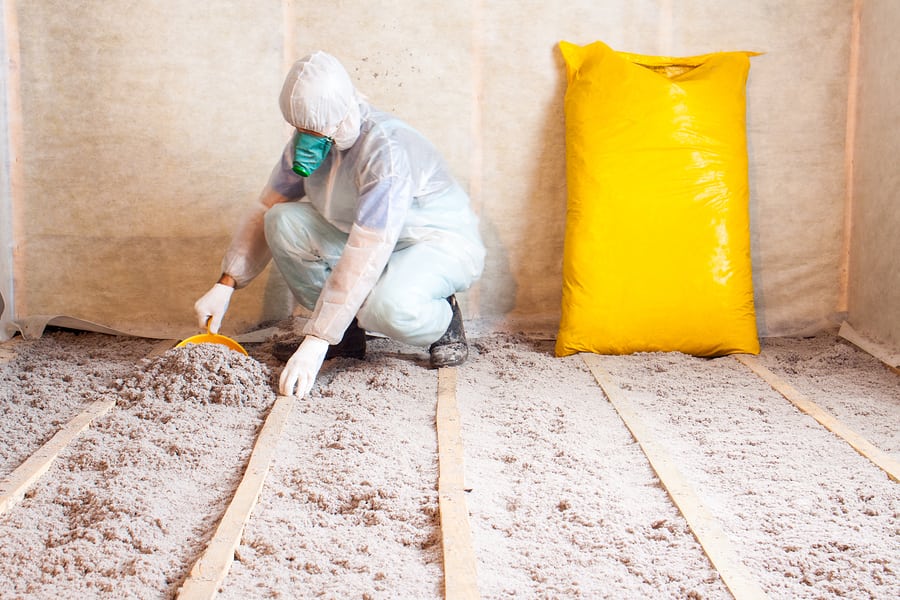
The main purpose of insulation is to slow down the transfer of heat from one area of your home to another. Even through floors, ceilings, and walls, heat always flows from warmer areas to cooler ones. This means that during the winter season, and due to the cold exterior, the heat in our houses flows outside.
Similarly, during the summer season, heat from the outdoors transfers into our cooler interior. To remove this heat, during summer months we run the air conditioner, and in winter we run furnaces to maintain the heat in our homes. This is to ensure a desirable room temperature, but this also means higher energy bills!
Does your cooling and heating system run for hours without stopping and without any noticeable change?
If so, you should consider adding insulation to your house.
Insulation Saves You Money
Heat moves from a warmer area into a colder area, but adding insulation to your home makes it difficult for heat to transfer, trapping it in the same place.
What makes our homes have poor insulation?
During the times when heating and cooling systems were not known or used commonly, our houses were built to automatically regulate indoor temperature. Thick insulation and strategically-placed windows were used as natural insulation. But in modern construction, our heating and cooling systems are now responsible for maintaining the temperature indoors.
In fact, they are the primary source of cooling as well as heating, making insulation a secondary concern. For instance, in many home constructions, builders purposefully cut costs by avoiding insulation.
Adding Insulation is Imperative
Adding insulation is no longer a tedious process. In fact, the whole process to install takes less time than most people think. For instance, insulation in spray form can be installed in the attic, above existing insulation. This stops the cold from transferring through the roof. Similarly, some crawl spaces or the basement in your house can also be a source of heat loss. You can avoid this by adding some special insulation panels to the ceilings of all of these spaces.
Call NexGen Today
Our expertise and commitment to customer satisfaction make us the leading HVAC company in Southern California. To learn more about our equipment, services, and protection plan,
book an appointment online or call
888-277-0415.
Reasons Your Heater is Blowing Cold Air
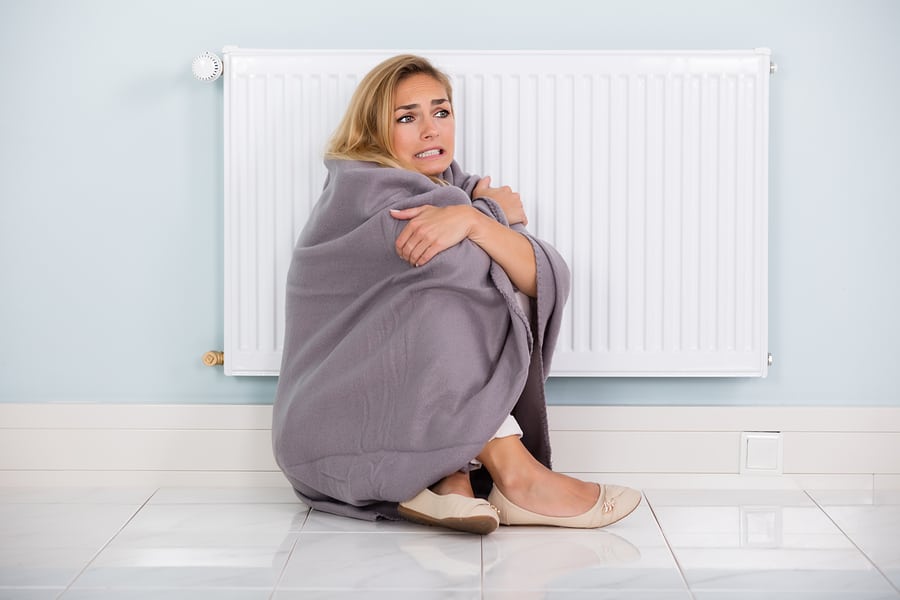
Expert Heater Repair in Los Angeles
Having a heater or heating system that blows cold air is a common problem. However, if you don’t take the right steps right away, this might cause you to incur heavy replacement costs. So the first time you feel a blast of cold air from your heater, here are a few things which need your attention.
Sometimes, these issues are easy to fix and you can resolve them on your own. At other times, you may need the assistance of a professional HVAC service to restore the proper functionality of your heater.
Common Issues with Heaters Blowing Cold Air
Thermostat Settings
The most frequent reason heaters malfunction can be a faulty thermostat. The thermostat is a major component of any heating system and where major HVAC issues begin.
Take a look at the thermostat and set it to ‘auto’ instead of ‘on’. When you keep your thermostat to ‘on’ mode, it constantly runs its fan to blow out air, even when your furnace is not actually heating.
Pilot Light Gone Out
Another possible reason for getting cold air out of your heater could have to do with the pilot light. Chances are that the pilot light is out. The pilot light is the small flame that lights when you turn on the heater. Sometimes you just need to re-light the pilot light in order to fix the problem. Also, the gas valve of your heater may be shut off if you are using a gas heater.
Also, make sure that you are receiving gas at full pressure in your home. You can do this by checking your gas-powered oven or stove. In the case of the electric furnace, check the connections and make sure that you are receiving adequate power.
Inspect Air Filters
Clogged air filters are another reason you could be experiencing cold air from your heater. A restricted or limited air flow can cause your heater to overheat. As a safety precaution, this overheating shuts off your heater’s burners. This safety control is installed to prevent damage to your furnace. So inspect the air filters and clean them to allow proper air flow, cleaning them every month, and replacing them every three months.
Duct Problems
When your duct is leaking, it makes you feel as if your furnace has stopped working. This happens because the cold air from outside your attic easily crawlspace and enters your house through these duct holes. So before you blame your heater for malfunctioning, first check your duct for any leaks or cracks. This is relatively an easy issue to fix as opposed to calling up the assistance of an electrician to fix the heating system.
Speaking of which, not every heating system issue can be fixed as a DIY project. Therefore, don’t hesitate in taking the assistance of a professional, nor should you simply overlook the issue altogether.
Call NexGen Today
Our expertise and commitment to customer satisfaction make us the leading HVAC company in Southern California. To learn more about our equipment, services, and protection plan,
book an appointment online or call
888-277-0415.


















